
Dear readers,
On 16 October, the Federal Ministry of Transport presented the public with the draft bill for an ordinance on new regulations for recreational boating. It was not unexpected. The plan has been known since the beginning of the year. Nevertheless, this draft now marks the first step on the way to the planned ordinance, so what was previously a debate is now becoming serious.
Stakeholders now have until 14 November to submit their comments. The concerns expressed in these comments can then be taken into account in the subsequent drafting of the final text of the ordinance.
This is where the process is located.
The ministry intends to finalise the procedure this year so that the regulation can come into force at the start of the 2026 season. The changes to the recreational boating licence system are to apply from 1 January 2028 after a transitional period.
- Draft bill: Draft bill SportSchV status 2025-10-16.docx
Old project
The idea of summarising the legal regulations for recreational boaters, on the other hand, is a very old one and has often been a wish expressed by those affected. The desired reduction in bureaucracy is also in their interest. However, opinions are divided on some points of the draft for the new regulation.
The German Sailing Association (DSV), for example, expressed concerns about the changes to the driving licence system intended by the regulation. The draft states: "In addition, the driving licence system for recreational craft and other watercraft used for sporting and leisure purposes is in need of renewal, which has been carried out by authorised persons in unchanged form for many years."
Withdrawal of the state
The solution proposed by the ministry envisages the state withdrawing from the driving licence system and leaving it to the associations to maintain it.
In fact, the DSV has had a sailing licence system in place for a long time. It dates back to 1929, when the sailors' conference decided to offer higher licences in addition to the sailing licences previously issued by the individual member clubs. A, B and C licences were created for inland, coastal and sea sailing. The DSV defined the training and examination content.
It was not until the so-called Third Reich that the state entered the sport boatmen's scene. One year after the seizure of power, the first state sailing licences were created in the form of the recreational sailing licence and the recreational offshore skipper's licence. It was not until 1967 that the Motorboat Driving Licence Ordinance was introduced in Germany, but at that time only for motorboats; skippers of sailing yachts were not affected by any such obligation, regardless of how powerful their yachts were.
The inland and sea recreational craft licences, together with the regulation and obligation for motorisation with more than 3.68 kW (around 5 hp), were created in 1973 and have existed ever since, with the limit shifted in 2013 to 11.03 kW (around 15 hp) for combustion engines and 7.5 kW (around 10.2 hp) for electric motors.
Associations act on behalf of the state
In 1994, the recreational sea and recreational deep-sea skipper certificates issued by the maritime schools were nationalised. From then on, they were called licences instead of patents and a recreational coaster licence was added. The old association licences, most recently known as R, BR, BK and C licences, no longer exist.
The German Motor Yacht Association (sport boat licences) and the German Sailing Association (sport boat licences and all others) are entrusted with the task of conducting the examinations for the now official licences and issuing them.
The legal term "lending" refers to the authorisation of legal entities under private law (such as associations or federations) or legal persons (such as notaries) to perform sovereign - i.e. state - tasks in the forms of action under public law.
Today, the two associations DMYV and DSV are also entrusted with the sovereign task of issuing radio certificates and the international boat licence. The ADAC has also been endeavouring to obtain these licences for many years, but so far without success.
Lending is attractive for the associations as it is accompanied by the collection of fees. A look at the corresponding annual financial statements also shows that this source of income represents a significant item in the respective budget.
End of the recreational craft licence?
However, this lending system could now come to an end following the bureaucratisation process that has been initiated, at least according to the draft bill. And this would also mean the end of the official recreational craft licence.
Prior to the preparation of the draft bill, the ministry had specifically Expert opinion on the question of which factors influence the safe operation of recreational craft and to what extent the necessity or criteria for a new regulation of the recreational craft licence requirement can be derived from this. The report was published by the Federal Waterways Engineering and Research Institute and compiled by the Shipbuilding Division in the Inland Waterways Engineering Department.
"This study investigated which factors influence the safe operation of recreational craft and to what extent the necessity or criteria for a new regulation of the recreational craft licence requirement can be derived from this," it says, and continues: "To this end, the regulations on the recreational craft licence requirement were considered in an international comparison and recreational craft accidents were statistically evaluated."
It is also stated that reliable statements about a connection between a licence and the probability of an accident cannot be derived from the data. However, the majority of accidents occurred with boats for which a licence is required.
Well-known arguments
In addition, well-known arguments are being considered that already emerged in the debate on the liberalisation of the recreational boating licence requirement in 2013. For example, that limiting the freedom to hold a licence by setting a horsepower limit would lead to underpowered vehicles being on the road, which would be dangerous.
One The first statement on the planned legislation comes from the DSV. However, it vehemently rejects the withdrawal of the state from the driving licence system and the abolition of the driving licence requirement. The planned regulations on the qualification system are legally questionable and worsen the quality of training.
The DSV's main criticism concerns the extension to other associations recognised by the ministry while at the same time abolishing the specialist supervision previously carried out by the ministry. This means that the state is relinquishing its responsibility for safety on the water.
In future, audit costs would be regulated by the market, which would lead to price dumping and thus to a loss of quality.
As a result, not only the safe coexistence of commercial and leisure shipping on the highly frequented federal waterways is being jeopardised, but also the basis of all responsible water sports in Germany.
Clinging to state supervision?
At first glance, the clinging to state supervision and compulsory driving licences seems almost bizarre. And anyone who only takes a superficial look at the topic could quickly get the impression that the core issue here is the fear of a loss of revenue sources.
However, the criticism is by no means only coming from the associations. In fact, the planned legislation should be criticised for many other reasons.
For example, according to the new regulation - if it comes into force - the practical examinations for association licences will have to take place on federal waterways whose area of validity is the subject of the examination. This would be a real problem for clubs and schools that are not located in the immediate vicinity of such waterways - and that is the vast majority: training and examinations would no longer be feasible in large parts of the country.
Legislators must make improvements
As welcome as it is that the regulations for recreational boating are being merged into one ordinance, the draft presented does not appear to be well thought out. It remains to be seen how the project will develop. As a reader of YACHT, you will be kept well informed.
Lasse Johannsen
Deputy Editor-in-Chief of YACHT
You have voted - the result of last week:
Umfrage beendet
Recommended reading from the editorial team

Autobiography
How Seamaster Award winner Craig Wood became a solo sailor
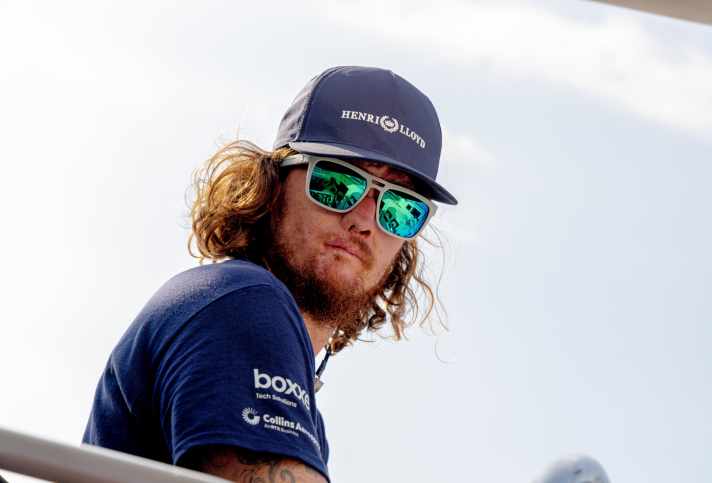
In his autobiography, Craig Wood, triple amputee and winner of the 2026 Seamaster Award, describes his journey to becoming a solo sailor. Preprint
European Yacht Of The Year 2026
The Dragonfly 36 wins in the fast lane as a performance yacht multihull
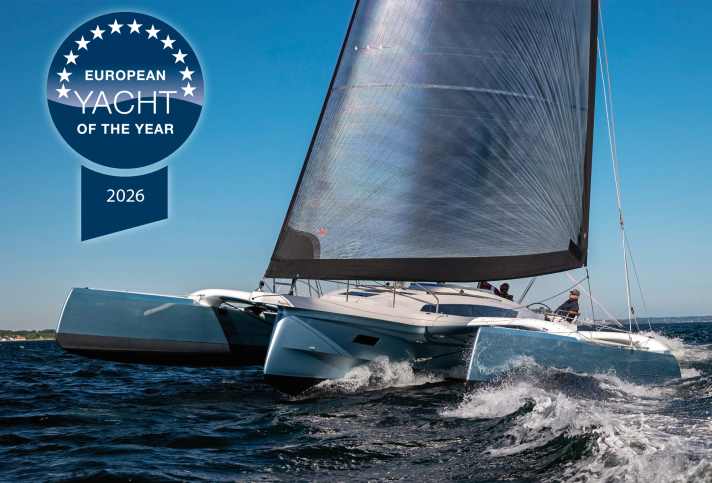
The trimarans from Denmark have already won many European Yacht of the Year titles. This time, the Dragonfly 36 shines in almost every respect.
RORC Transatlantic Race
"Walrus 4" crew member deceased
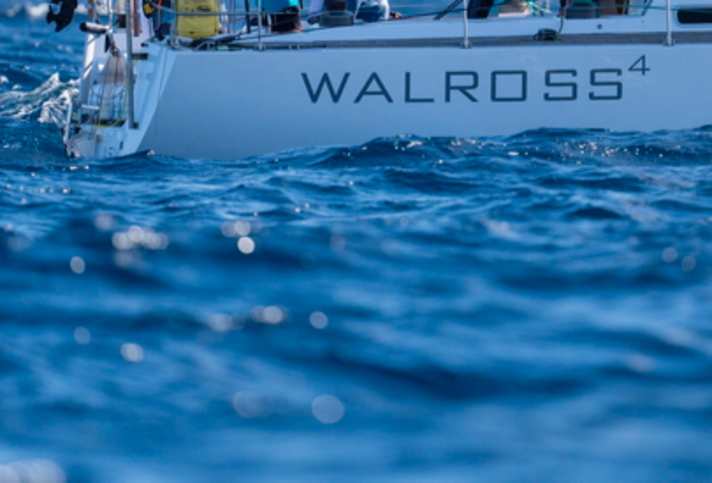
Deep concern has turned into sad certainty: A crew member of the "Walrus 4" has died as a result of an on-board accident during the RORC Transatlantic Race.
Recreational boating licence
Federal Ministry of Transport announces end to lending practice
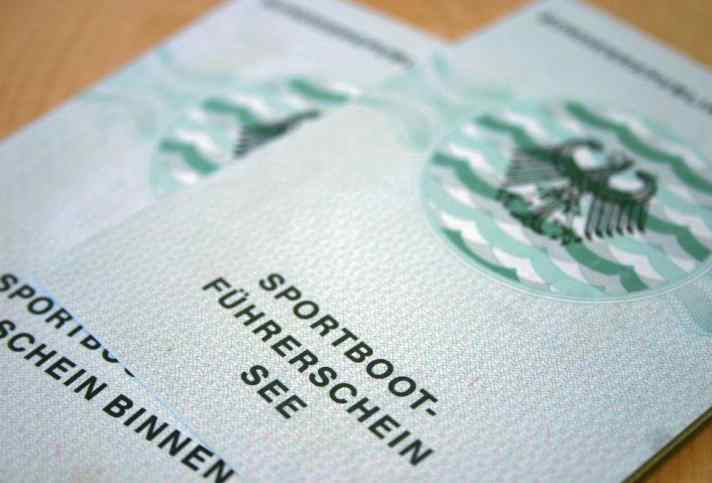
The Federal Ministry of Transport has announced that the new Recreational Craft Ordinance will come into force in the middle of the year. The plan to replace official recreational boating licences with so-called association licences remains in place.
European Yacht Of The Year 2026
Newcomer Pure 42 is Bluewater Cruiser of the Year 2026
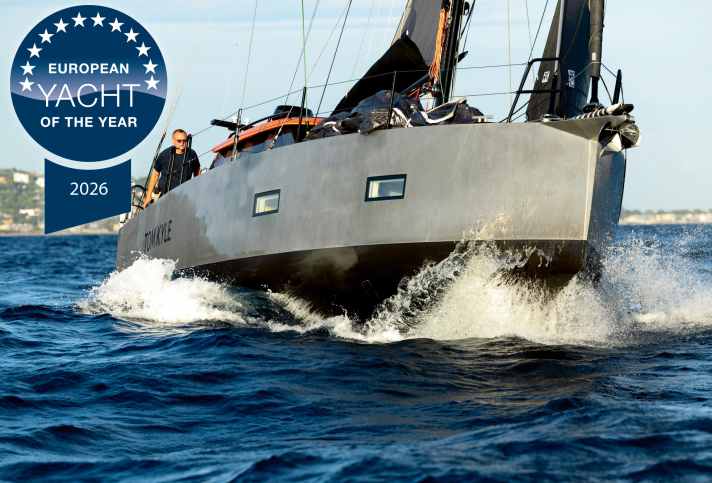
The Pure 42 is a premiere success: it is the brand's first model to win the title outright. There is nothing comparable in terms of quality and design
RORC Transatlantic Race 2026
Test passed - "Raven" as the first mono in the Caribbean nest
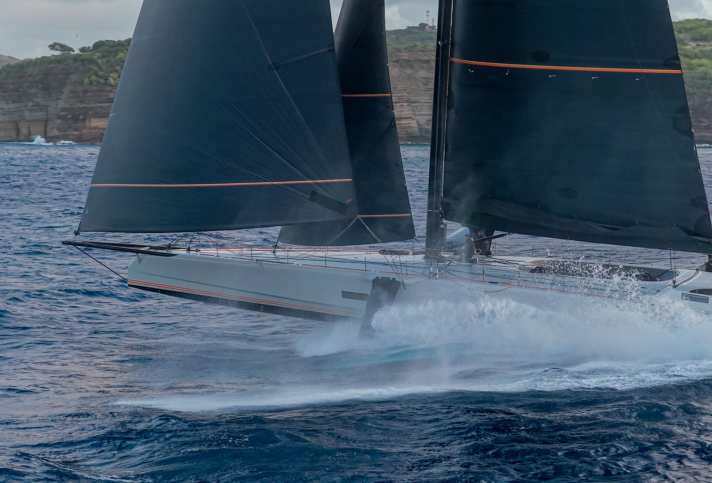
The 34 metre long "Raven" set a new monohull record in the RORC Transatlantic Race. After almost seven days, the foil-supported carbon construction roared to the finish line at 30 knots. The MOD70-Tri "Argo" broke the multihull record.
DGzRS balance sheet 2025
Most frequent mishaps among sailors
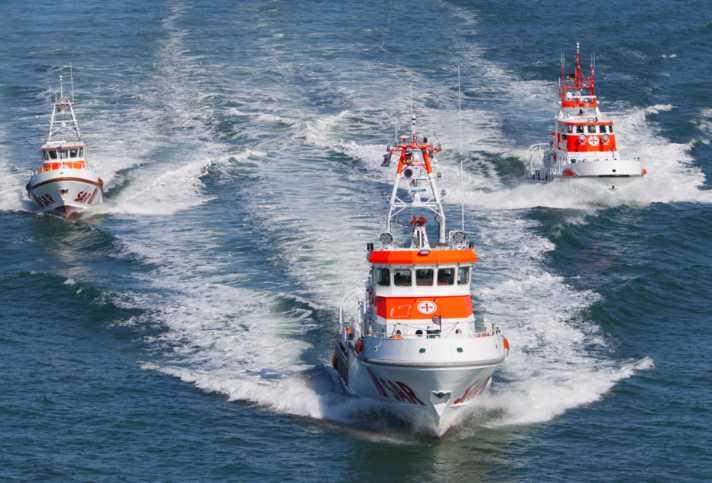
876 missions for water sports enthusiasts alone: the DGzRS balance sheet 2025 shows that sailors needed help particularly frequently and which mishaps dominated on the North Sea and Baltic Sea. Plus: fleet update, new ambassador and an overview of the most important figures.
J/36
Timeless hull shape in a new edition
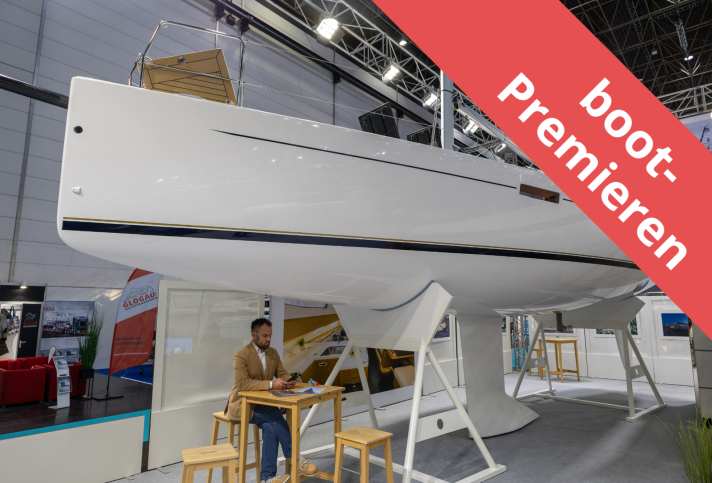
With the new J/36, J/Boats rounds off the bottom end of the brand's Elegance programme. The trunk boat now comes with two wheels.
European Yacht Of The Year 2026
These are the winners of the Sailing Oscars!

Not only the award winners, but also many of the nominees shine in this year's Europe's Best of the Best poll with what is probably the most important primary virtue: sailing fun.
Boot Düsseldorf
The new First 60 from Beneteau comes with a wow effect
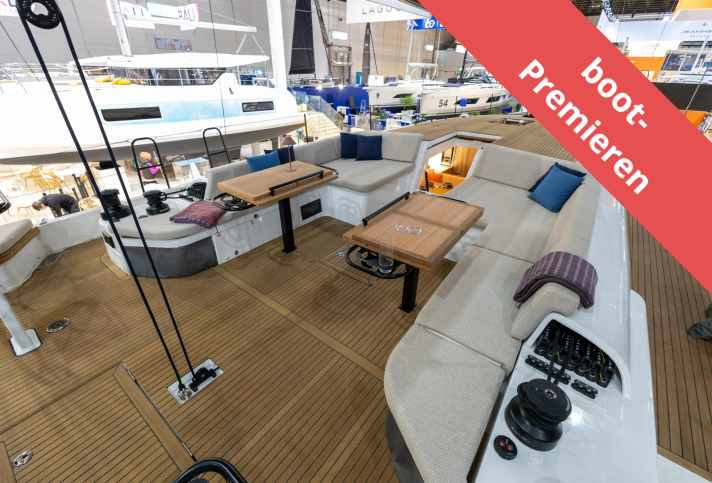
At 10.00 a.m. sharp, the covers have come off. Beneteau unveils the brand new First 60 as the new flagship for the sporty model range at the boot trade fair in Düsseldorf. The luxurious Fast Crusier is set to set new standards.
Newsletter: YACHT-Woche
Der Yacht Newsletter fasst die wichtigsten Themen der Woche zusammen, alle Top-Themen kompakt und direkt in deiner Mail-Box. Einfach anmelden:

